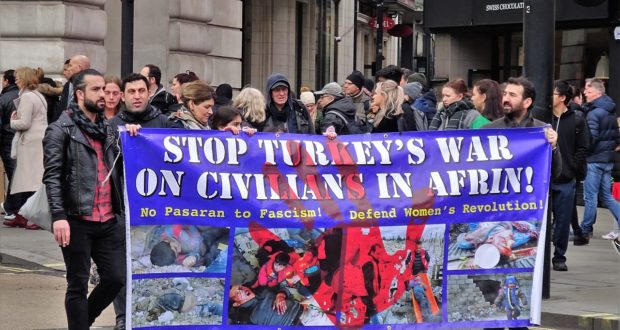15 August, 2019
Nova Daban – Guest Contributor
Turkey should be booted from NATO. It no longer represents the interests of the largely western military alliance. Formed in 1949, the intergovernmental organisation’s main aim was to curb the threat the Soviet Union represented. When the Cold War ended, NATO broadened its focus to encompass non-state security challenges. Following the September 11th attacks in New York and Washington D.C., NATO invoked Article 5 of its founding treaty, and since this point, the US alongside a number of its allies in the organisation began to adopt a more interventionist policy in the Middle East, Central Asia and North Africa. The War on Terror (centred on countering Islamist fundamentalism) took the helm in the list of priorities, alongside attempting to overthrow autocratic leaders that were hostile to the US. Turkey, as a fellow NATO member situated in the most western part of the Middle East, and thus being a bridge between the west and east, is expected to deliver the military alliance’s policies in the region. However, with western military intervention against ISIS from 2014 following the Yezidi Genocide, Turkey has been more of a hindrance to the US than a helping hand in combating ISIS.
The Battle of Kobane in 2014 offered the first opportunity for Turkey to assist in the fight against ISIS with the world watching. The US intervened with airstrikes and weapons airdrops to the People’s Protection Units (YPG), a Kurdish militia in control of parts of northern Syria (known as Rojava) from 2012 as an outcome of the civil war, in an unprecedented military alliance. Turkey, on the other hand, refused to get involved in the conflict, despite the city being on its borders, on the premise that the YPG were the Syrian wing of the Kurdistan Workers’ Party (PKK). The minimal actions of Turkey were restricted to allowing 150 armed Peshmergas from the Kurdistan Region of Iraq to cross the border into Syria (via Turkey), which was only in response to the airdrop of weapons by the US which Turkey strenuously objected to. This represented Turkey’s first policy in Syria that did not go hand in hand with the US.
With the growing military alliance of the US and the YPG, the multinational Syrian Democratic Forces (SDF) was eventually formed with the latter at the helm. The aims were to destroy ISIS in North and East Syria and eventually return the cities to civilian rule. Turkey, which protested at the military alliance and brands US allies in Syria as terrorists, has continuously threatened to destroy the SDF presence, hampering the war against ISIS. In 2018, the SDF suffered its first invasion after Turkey and its armed Islamist proxies, which included former ISIS fighters under the banner of the Turkish-backed Free Syrian Army (TFSA), violently took over Afrin in northwest Syria. Since then, there have been reports accusing the new proxy administration of importing displaced Syrian Arab opposition supporters from the war, with the exodus and ethnic cleansing of thousands of local Kurds, alongside the banning of cultural practices and the forced conversion of Yezidis to Islam. There had been military standoffs and rockets being launched before, but never a full-scale invasion. The US was against the invasion of Afrin, known as “Operation Olive Branch”, but ultimately did not intervene as Russia was in charge of the region’s airspace. To facilitate this attack, a deal was clearly made by Russia and Turkey, with the later making concessions (via proxy groups) in Idlib to the Syrian Regime.
With the territorial element of the war on ISIS now effectively over, the SDF-controlled areas in Syria still need stabilisation to avoid the regeneration of the extremist group, and a conflict with Turkey hinders this. Turkey’s continued threats have caused a breakdown in relations with the US, leading to a pivot towards Russia that has included a huge $2.5 billion arms deal (Turkish acquisition of S-400 missile system), which only further defies the foundations of NATO. In recent days, Turkey has threatened a full-scale invasion against the SDF unless a 32km deep “safe zone” in Syria across the border is formed, with them in control. The Pentagon, however, warned them against unilateral action. Following the warning, an agreement was reached by Turkey and the US on a “safe zone” and joint coordination centre, but no further information was spoken off apart from the “safe zone” addressing security issues and displaced Syrian Arab refugees in Turkey being able to move in. The latter issue itself is a very controversial topic, as it is seen by the Kurds as another policy of Arabisation that Afrin had suffered from, and Kurds in general, suffered from under the Assad regime. With Turkey going against US and western policy in Syria, which is continued support for the SDF to deter the rise of ISIS and Islamist terrorism again, alongside continuing to pivot towards Russia, it may be time to punish them and kick them out of NATO.
Image: Protest in London against Turkish military operation in Afrin (Source: David Holt/CC BY 2.0)
 Human Security Centre Human Rights and International Security Research
Human Security Centre Human Rights and International Security Research




